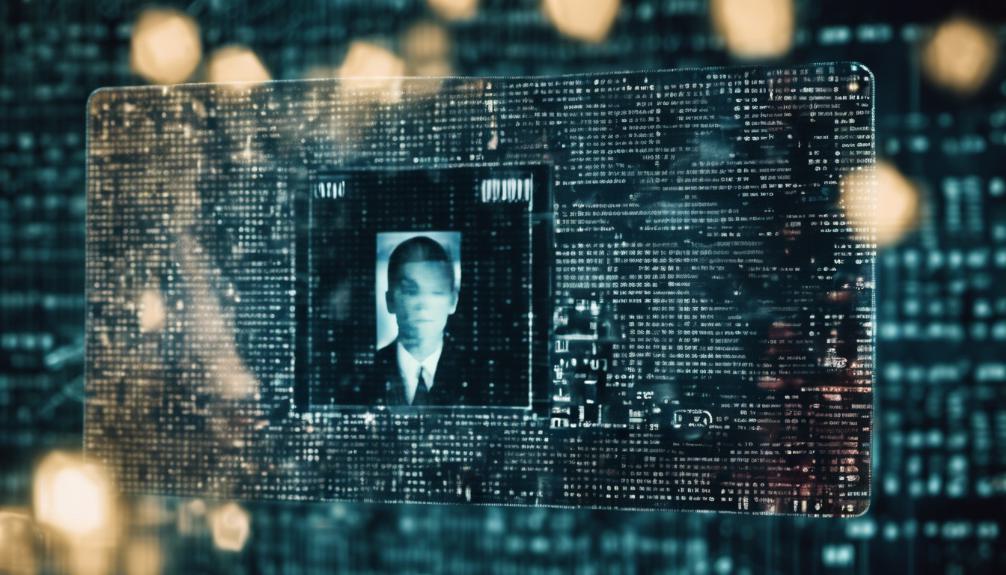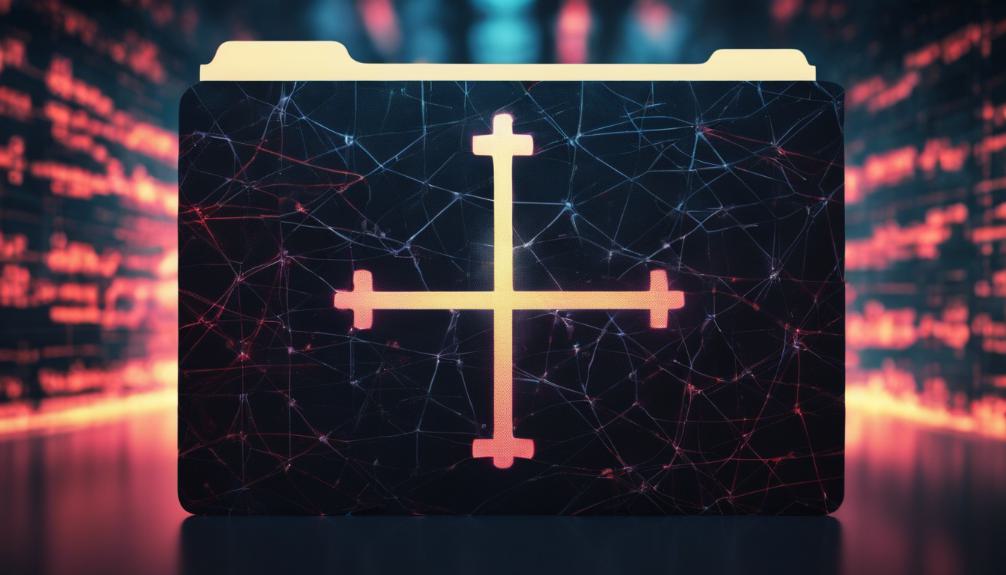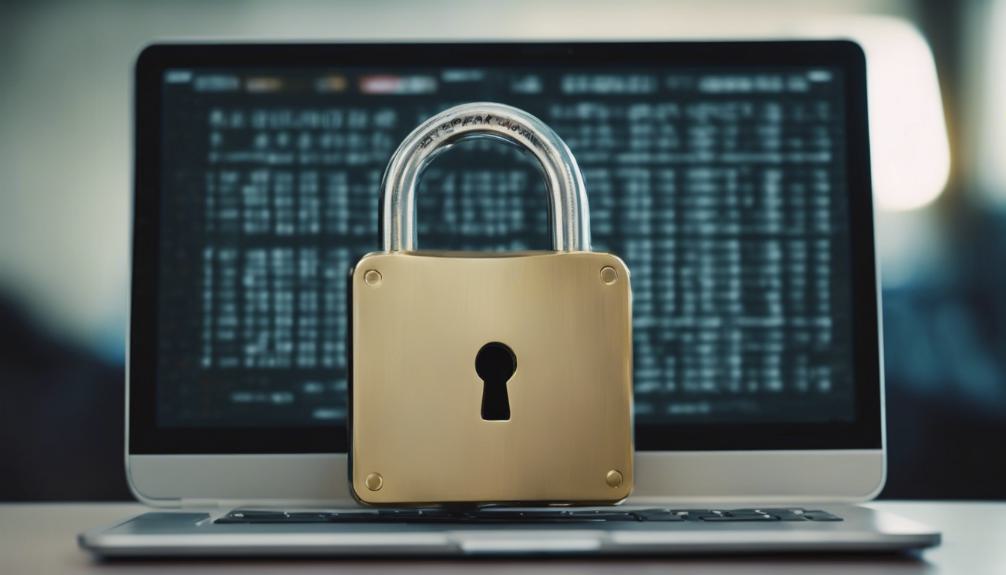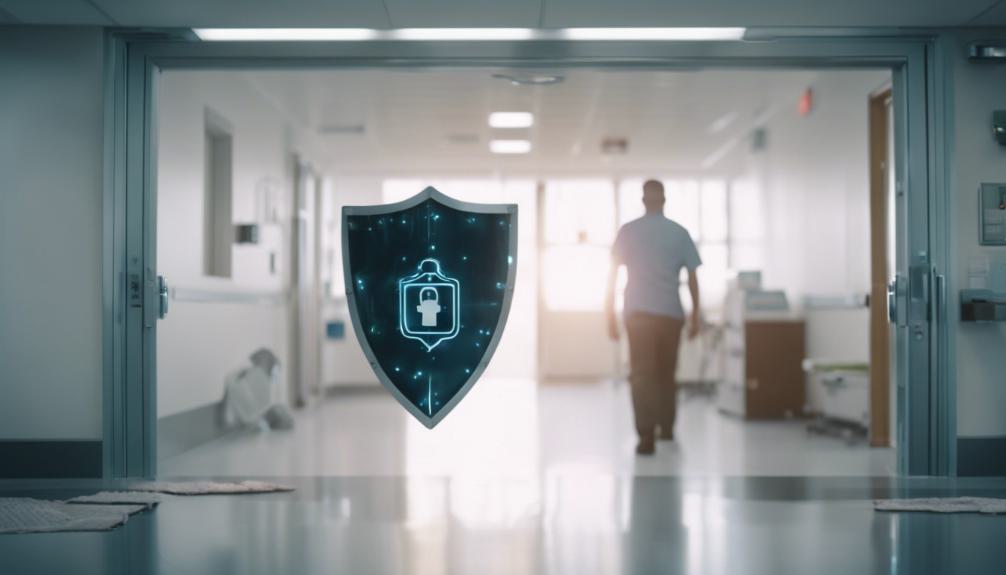PharMerica Data Breach Risks Patient Identities
The recent revelation of a data breach at PharMerica, affecting millions, underscores a critical vulnerability in the healthcare industry's defense against cyber threats. With personal and medical information of over 5.8 million patients compromised, the incident not only raises questions about the adequacy of current cybersecurity measures but also casts a shadow over the sanctity of patient privacy. As we peel back the layers of this breach, the interconnected challenges of legal repercussions, identity theft, and the broader implications for the healthcare sector become evident. This situation beckons a closer examination of how entities like PharMerica navigate the murky waters of cybersecurity, prompting a discussion on the necessary steps to fortify defenses and restore trust among those impacted.
Key Takeaways
- Over 5.8 million patients' personal and medical data were exposed in the PharMerica data breach.
- Stolen information includes sensitive details like social security numbers and health insurance info, heightening identity theft risks.
- The Money Message ransomware gang claimed responsibility, publishing 1.6 million unique personal records online.
- PharMerica offers affected individuals a one-year Experian IdentityWorks Credit 3B subscription for identity protection.
Data Breach Summary

The recent disclosure by PharMerica of a data breach impacting over 5.8 million patients underscores a significant vulnerability in the protection of personal and medical information. This incident, involving the exposure of sensitive data to unauthorized parties, has shone a spotlight on the imperative need for rigorous data security measures within the healthcare sector. For organizations dedicated to serving others, particularly in such a personal capacity as healthcare, the safeguarding of patient information is not just a legal obligation but a fundamental aspect of trust and care. The breach, discovered in March and publicly acknowledged in May, serves as a critical reminder of the ongoing challenges in securing private data against increasingly sophisticated cyber threats. Addressing these vulnerabilities is essential for maintaining the confidentiality and integrity of patient information, a cornerstone of compassionate and ethical healthcare provision.
Affected Patient Information

Victims of the PharMerica data breach had their personal and medical information, including addresses, full names, dates of birth, social security numbers, medications, and health insurance details, compromised. This breach not only risks their privacy but also exposes them to potential identity theft and fraud. For those who dedicate their lives to serving others, the importance of safeguarding such sensitive information cannot be overstressed. The compromised data encompasses elements critical to an individual's identity and health privacy, underscoring the necessity for stringent security measures. It is imperative for all, especially entities entrusted with personal data, to prioritize the protection of this information to prevent such breaches and maintain the trust of those they serve.
Legal Implications

Addressing the legal implications of the PharMerica data breach reveals a complex landscape of potential liabilities and regulatory scrutiny for the company. As a provider entrusted with sensitive patient information, PharMerica's exposure of over 5.8 million individuals' personal and medical data to hackers places it under the purview of various federal and state regulations, including the Health Insurance Portability and Accountability Act (HIPAA). Violations of such regulations can lead to significant financial penalties, legal actions, and a mandate for corrective measures to prevent future breaches. For those dedicated to serving others, understanding these legal frameworks is critical. It emphasizes the importance of robust data protection practices, not just for compliance but as a fundamental aspect of patient care and trust.
Identity Theft Concerns

Understanding the legal implications of data breaches underscores the pressing need to focus on the rising concerns of identity theft faced by those affected. The PharMerica incident reveals a stark vulnerability in safeguarding patient identities, emphasizing the urgency of thorough protective measures. For those in positions of trust and responsibility, it is paramount to advocate for and implement thorough security protocols to prevent such breaches. Additionally, offering support and resources to those compromised can mitigate the long-term consequences of identity theft. This includes guiding affected individuals towards identity protection services and educating them on monitoring their financial and medical records for signs of fraudulent activity. Ensuring the privacy and security of personal information is not just a legal obligation but a moral one, reflecting a commitment to the well-being and trust of those served.
Ransomware Gang Involvement

The involvement of the Money Message ransomware gang in the PharMerica data breach highlights a disturbing trend in cybercriminal activities targeting healthcare providers. This particular incident underlines the vulnerability of institutions dedicated to the well-being and health of individuals, emphasizing the need for enhanced security measures and vigilance. Healthcare entities, as stewards of highly sensitive personal and medical information, must recognize the heightened risks posed by sophisticated cybercriminal groups. These adversaries exploit vulnerabilities for financial gain, undermining the trust patients place in healthcare systems. The commitment to safeguarding patient information is paramount, requiring a collaborative effort to bolster cybersecurity defenses and educate staff on potential threats. This incident serves as a stark reminder of the ongoing battle against cyber threats in the healthcare sector.
Exposed Data Accessibility

Given the involvement of the Money Message ransomware gang in the data breach, it is pertinent to examine how the exposed data remains accessible and poses ongoing risks to affected individuals. Despite the breach being publicized, the stolen data, including sensitive personal and medical information, remains available on dark web forums and the gang's extortion site. This accessibility not only prolongs the vulnerability of the victims but also facilitates the potential for identity theft, fraud, and other malicious activities by cybercriminals. For those committed to serving and protecting others, understanding the gravity and persistence of this exposure is important in implementing protective measures and support for those impacted, emphasizing the need for continuous vigilance and proactive steps to safeguard personal information in the wake of such breaches.
PharMerica's Security Measures

In response to the data breach, PharMerica has implemented undisclosed security measures to enhance protection against future cyber threats. This initiative underscores the company's commitment to safeguarding the sensitive information of its patients and partners. In an era where digital security is paramount, the move is both a necessary step and a proof of PharMerica's resolve to fortify its defenses. While specific details of these enhancements have not been made public, it is clear that PharMerica is actively working to prevent a recurrence of such incidents. This effort is crucial for maintaining trust and ensuring the privacy and security of individuals who rely on PharMerica for their pharmacy and health service needs.
Recommended Victim Actions

Acknowledging PharMerica's efforts in enhancing security measures, it remains imperative for affected individuals to actively engage in safeguarding their personal and financial information following the data breach. Victims are advised to monitor their financial accounts closely for any unauthorized transactions and consider placing fraud alerts on their credit reports. Enrolling in the offered one-year subscription to Experian IdentityWorks Credit 3B can provide an additional layer of security, helping to detect potential misuse of personal information. Moreover, changing passwords and security questions for online accounts, especially those related to financial and health services, can prevent unauthorized access. Remaining vigilant and informed about the latest scams targeting data breach victims is also vital in protecting oneself against potential threats.
Ongoing Risks Analysis

The data breach at PharMerica poses ongoing risks for affected individuals, as the stolen information may continue to circulate and be exploited by cybercriminals. This breach's exposure of sensitive personal and medical data opens the door for multifaceted threats, including identity theft, financial fraud, and unauthorized access to medical records. For individuals dedicated to serving others, understanding these risks is paramount. The persistence of stolen data in the cybercriminal ecosystem means that the impact can extend far beyond the immediate aftermath of the breach. Vigilance in monitoring personal information and being aware of potential signs of identity theft is essential. Serving our communities starts with safeguarding the privacy and security of their most delicate information, underscoring the importance of continuous risk analysis in the wake of such breaches.
Protective Services Offered

Understanding the persistent risks posed by the PharMerica data breach necessitates a closer examination of the protective services made available to affected individuals. In response to this significant data compromise, PharMerica has proactively offered victims a one-year subscription to Experian IdentityWorks Credit 3B. This service is designed to monitor credit reports from three major credit bureaus, alerting subscribers to any changes that could indicate fraudulent activity. Additionally, it includes identity theft insurance and dedicated support for resolving identity theft issues. While the breach's impact is profound, the provision of such protective services is a critical step in safeguarding the financial and personal information of those affected. It underscores a commitment to aiding victims in *the aftermath of the data breach with essential tools for monitoring and protection.*
Frequently Asked Questions
How Can Affected Patients Monitor Their Medical Records for Signs of Unauthorized Access or Misuse?**
To monitor medical records for unauthorized access or misuse, affected patients should regularly review their healthcare statements and insurance claims for discrepancies. Enrolling in the offered Experian IdentityWorks Credit 3B service can provide additional oversight by alerting individuals to potential fraudulent activities involving their personal information. Vigilance in monitoring financial accounts and credit reports for unusual activities is also essential. Promptly reporting any irregularities to healthcare providers and insurance companies is vital for safeguarding personal data.
This Question Seeks Specific Advice Beyond the General Recommendation of Credit Monitoring and Could Explore Avenues Such as Contacting Healthcare Providers, Reviewing Explanation of Benefits (Eob) Statements, or Using Medical Identity Theft Protection Services.
In the wake of a significant data breach, affected individuals are advised to go beyond traditional credit monitoring. Engaging directly with healthcare providers, meticulously reviewing Explanation of Benefits (EOB) statements, and considering enrollment in medical identity theft protection services are prudent steps. These measures serve as a beacon of vigilance, illuminating the path to safeguarding one's medical and personal information from unauthorized access and potential misuse in today's digital landscape.
What Steps Should Individuals Take if They Notice Unfamiliar Charges or Prescriptions on Their Medical Records?**
Individuals noticing unfamiliar charges or prescriptions on their medical records should immediately contact their healthcare provider to report the discrepancies. Reviewing Explanation of Benefits (EOB) statements regularly for any unauthorized services or items is crucial. Additionally, engaging medical identity theft protection services can provide an added layer of security. These steps are critical in safeguarding personal information and preventing further unauthorized activities, ensuring one's medical and financial integrity is maintained.
This Question Addresses the Immediate Actions a Patient Should Take if They Detect Anomalies in Their Medical History or Insurance Claims, Which May Not Be Covered in Broader Discussions of Identity Theft.
When patients detect anomalies in their medical history or insurance claims, immediate steps are critical. They should first report the discrepancies to their healthcare provider and insurance company to prevent further unauthorized use. Subsequently, contacting legal authorities and the Federal Trade Commission (FTC) for guidance on identity theft protection is advisable. Additionally, monitoring credit reports and financial statements for unusual activity can help mitigate potential damage and safeguard against identity theft.
Can Affected Patients Request a Legal Injunction Against the Unauthorized Use of Their Stolen Data?**
Affected patients concerned about the unauthorized use of their stolen data may explore the possibility of requesting a legal injunction. This legal measure could potentially prevent further misuse of their personal information. However, the success of such an action depends on various factors, including the jurisdiction's laws and the specifics of the case. It is advisable for individuals to consult with a legal expert to understand their rights and the feasibility of pursuing an injunction.
Conclusion
Conclusively, the PharMerica data breach serves as a stark reminder that in the digital age, 'an ounce of prevention is worth a pound of cure.' This incident underscores the urgent need for stringent cybersecurity measures within the healthcare sector to safeguard patient information. It highlights the critical importance of rapid response strategies, thorough protection services, and the cultivation of awareness among individuals to mitigate the risks of identity theft. Vigilance and proactive measures are paramount in protecting the sanctity of personal and medical data.

This post has been generated by AI and was not reviewed by editors. This is Not legal advice. Please consult with an attorney.

